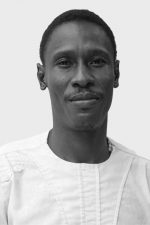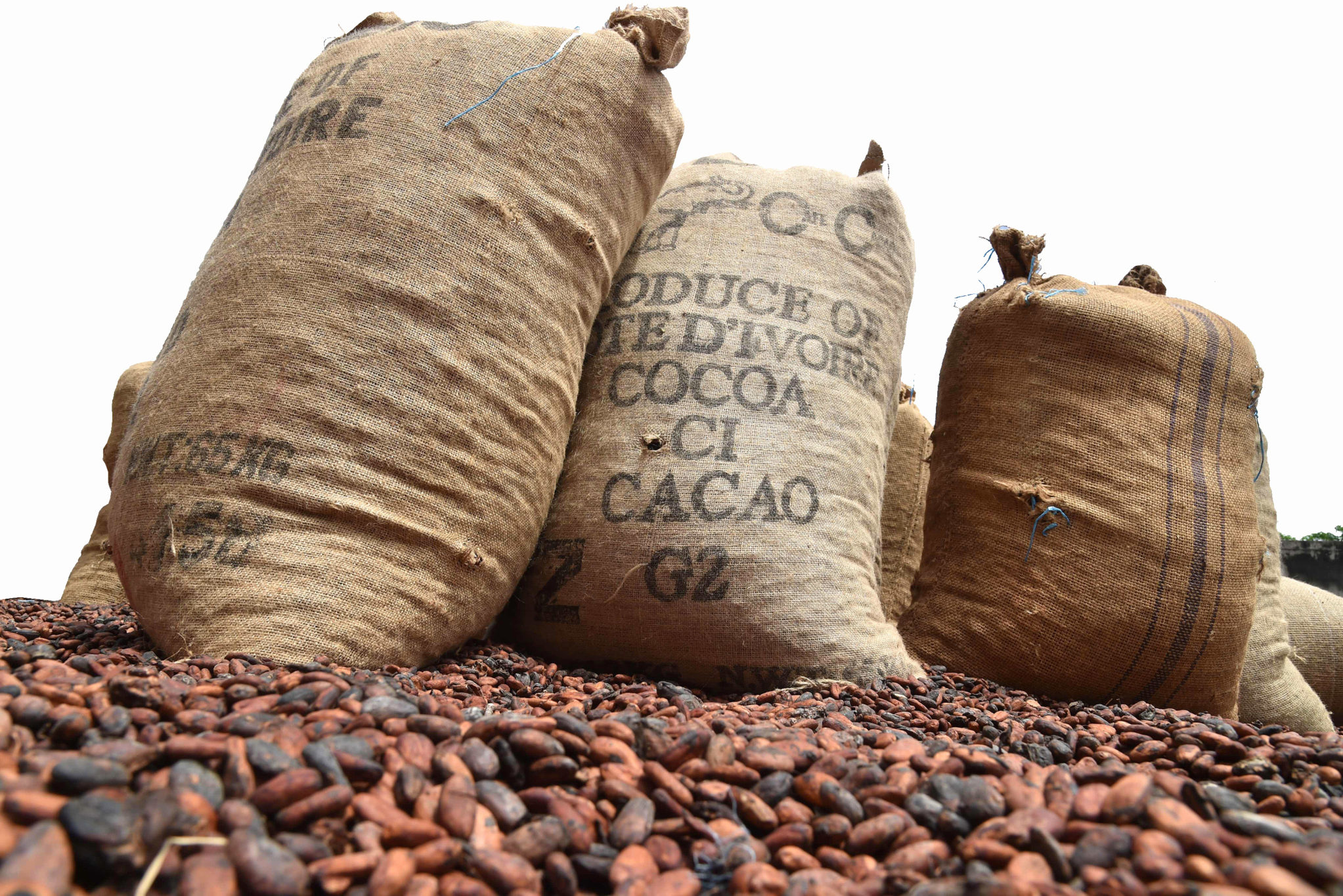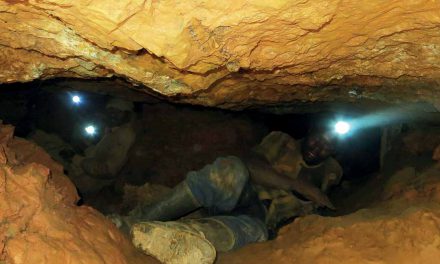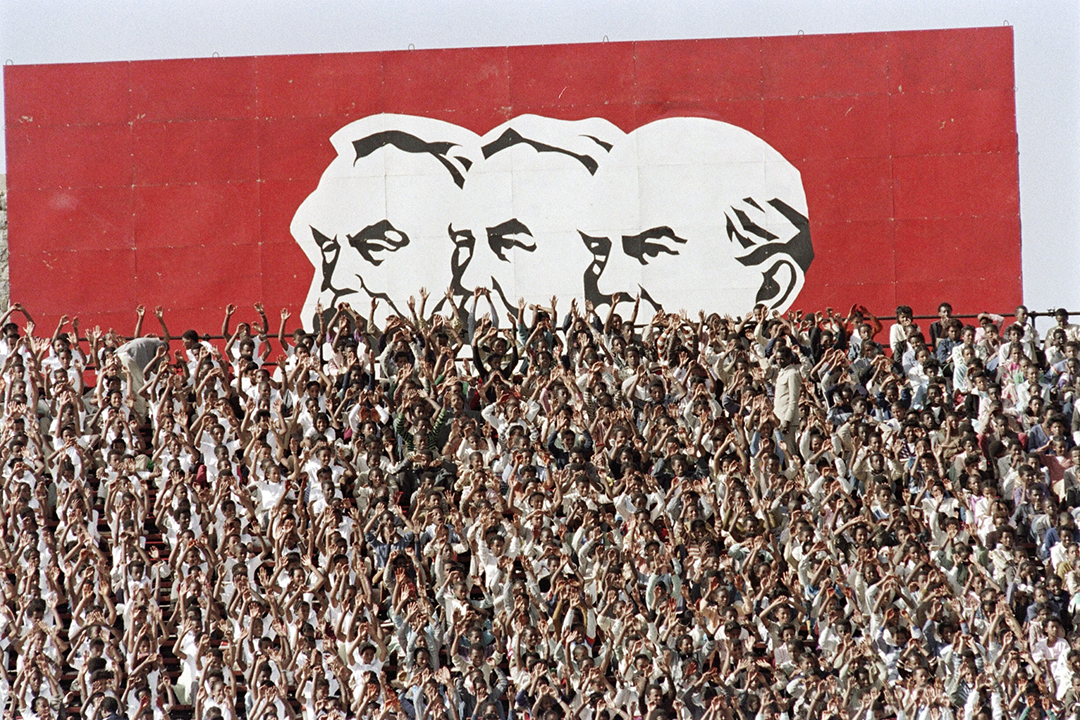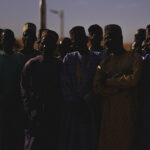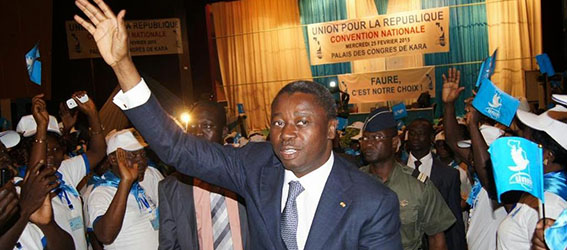
Togo President Faure Gnassingbé waving at his supporters after being appointed presidential candidate for the UNIR ruling party in February 2015. Image Blamé Ekoue
Decades of family rule in Togo country have resulted in very little development
Ethnicity has been an important political tool for the family that has ruled Togo for nearly half a century. The current president, Faure Essozimna Gnassingbé, and his ruling Union Pour la République (UNIR) party have consistently privileged their Kabyè ethnic group, a minority, to the detriment of other ethnic groups, including the Ewe, Mina and Kotokoli.
The pervasive influence of ethnicity in Togolese politics dates at least as far back as 1960, when Togo attained independence from colonial rule. In 1963 the country saw the continent’s first post-independence coup d’état, when the then president, Sylvanus Olympio, who hailed from the major Ewe ethnic group, was assassinated.
He was gunned down by military men led by Gnassingbé Eyadema, later president, after refusing to integrate Togolese soldiers who had served in the French colonial army into Togo’s post independence army. Most of the rebel soldiers were from northern minority ethnic groups.
The country is home to 40 different ethnic groups, according to a 2007 Private Sector Recovery Policies and Strategies Review study published by the World Bank. According to the most recent population census by Togo’s Ministry of Planning Affairs, carried out in 2010, the Kara region, which is mostly populated by the Kabyè ethnic group of President Faure Gnassingbé, is the fourth largest of five regions, with a population of 769,940 people or 12.4 percent of the population.
The Maritime region—home of the Mina and Ewe ethnic groups and including Lome, the capital—has 2.6 million people representing 42 percent of the population. The Plateau and Savannah regions are home to 22.2 percent and 13.4 percent of the population respectively, while the Central region is the smallest region, with 10 percent of the population.
Faure Gnassingbé is the son of a former president whose party opted, decades ago, for centralised government. The result was a distribution of power and national wealth that favoured their ethnic group. “Ethnicity continues to negatively impact the implementation of policies put in place since the country resumed economic cooperation with its development partners,” says Claude Ameganvi, leader of the opposition Parti des Travailleurs (Workers’ Party).
Many ministers from the Kabyè ethnic group of Gnassingbé’s party have been accused of embezzlement. But neither an anti-corruption commission— set up in 2001 but now defunct—nor a newly created “high authority against corruption” has succeeded in bringing any of them before a court.
In 2010 Togo normalised relations with the EU and Bretton Woods institutions after 15 years of economic sanctions imposed by the EU because of concerns about the country’s poor human rights record. Improved governance was a condition for the resumption of cooperation between the country and its development partners. But bad governance, largely due to the fixation of ruling party politicians on ethnic identity and region of origin, has cost the country 300 billion CFA francs (about US$550 million) every year, says former prime minister, Yawovi Agboyibo.
The government has taken steps toward political reform and fiscal transparency—including economic planning, structural adjustment, financial stabilisation and the setting up of the new anti-corruption agency. But civil rights organisations say that “barons” associated with the Kabyè and the ruling party continue to prevent legal proceedings against kinfolk and relatives allegedly accused of public asset misappropriation and mismanagement.
“Corruption blights development of Togo to the extent that it dries up financial resources and deprives the country of necessary resources for the better implementation of national development programs,” according to a June 2016 assessment by the Centre for Analysis and Capacity Building in Togo (CADERT).
Togo is ranked 107 out of 168 countries in Transparency International’s 2015 Corruption Perceptions Index, which measures perceived levels of public sector corruption worldwide.
Gnassingbé assumed office after the death of his father in February 2005, and he has tried to involve other ethnic groups in government, as seen in several cabinet reshuffles. But his efforts to ensure fiscal prudence have largely failed. About 61 percent of Togolese citizens are unhappy with the government’s campaign against corruption, according to the 2015 Global Corruption Barometer, a survey run by the Afrobarometer Institute and Transparency International.
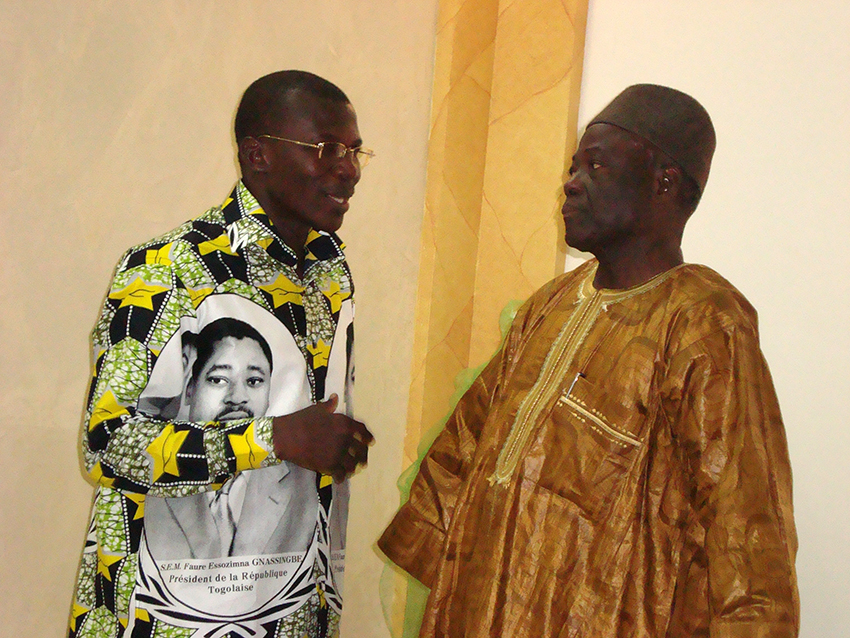
Ninsao Gnofam, Togo’s minister for public works and transport (left) and Esso Solitoki, the minister of state (right) both belong to the Kabye ethnic group of president Faure Gnassingbé. Image Blamé Ekoue
In April 2012, addressing the nation, Gnassingbé acknowledged that “a minority monopolises the national wealth in Togo”. For many Togolese human rights activists, this mea culpa explained decades of public anger at nearly half a century of one-family rule.
“Ethnicity causes the unfair sharing of the national wealth, and the systematic corruption at all levels of public administration in Togo,” says Alain Lawson, a 60-year-old Togolese opposition activist.
“This situation has helped a small section of the population from the same ethnic group to maintain its hold on power.” Anger at ethnic exclusion has caused several post-electoral crises.
In 2005 over 500 Togolese were killed following skirmishes between pro- regime military forces and opposition militants, according to a UN fact- finding team. “If the soldiers or pro-ruling party militiamen found that you are from the southern parts [of the country], you were subjected to beatings.
This shows that we are not in a democracy but in what I would [describe as] tribalism,” said Lawson, who still bears scars from wounds inflicted during the 2005 post-electoral violence.
Some political analysts think that opposition parties are also to blame for the ethnic polarisation of the country because they boycotted the 2002 parliamentary polls; the ruling party-dominated National Assembly took the opportunity to unilaterally amend the 1992 constitution, which had stipulated a two-round system of voting, as well as limits on the mandate of a sitting Togolese head of state.
Following the changes, a simple majority could win an election, which has encouraged aspirants for the presidency to seek support only from their own ethnic groups.
“The system [should] encourage politicians to forge alliances and to broaden their support by seeking votes outside their traditional ethnic strongholds,” says Marc Attipoe, a Togolese sociologist.
The late Gnassingbé Eyadema applied a divide-and-rule policy, favouring his Kabyè ethnic group over others, and directing resources to areas where they lived. In 2011, some 58.7 percent of the population were living in poverty, according to a survey by the General Directorate of Statistics and the National Income Accounting. This percentage does not appear to have changed much, despite important investments made by the government aimed at improving work prospects for Togolese.
“Many of the social tensions that [have] rocked the country since 2013 are expressions of unfulfilled expectations,” says Spero Mawule, secretary general of the Collectif des Assocations Contre l’Impunité au Togo, a group of civil rights organisations against torture and impunity in Togo. “They [show] the resentment [people from other groups feel] at the existing distribution of [wealth].” He warned that “a bloody revolution” might yet occur if the Kabyè elite and other minority ethnic groups close to the regime continued to enrich themselves at the expense of other groups.
Though the incumbent head of state claims to want to improve the country’s economic and social development by focusing on health and education, many Togolese are not seeing any visible signs of his promises. Togo’s Human Development Index (HDI) value for 2014 was 0.484, putting the country at 162 out of 188 countries, according to the UNDP.
These figures are indicative of the broader failures of the Togolese elite to develop the country. Most public companies are managed by long- standing figures from the Kabyè. Meanwhile, graduates from other ethnic groups find it almost impossible to get jobs. “No one can fire the old barons because they belong to the same ethnic group as the ruling family,” says Khalife Michel, an economics lecturer at Lome University. “Every year, over 10,000 young Togolese graduates look for jobs, but they have lost confidence in the government and its employment policies.”
Blame Ekoué is the Togo correspondent for the BBC and for Paris-based media house, ANA. He has also reported for Associated Press and Radio France International. He holds a BA in Communications from the Leader Institute in Lomé. Formerly deputy editor of the West Africa Revue, he has been a contributor to the Lome-based Business and Finance magazine since 2015.



